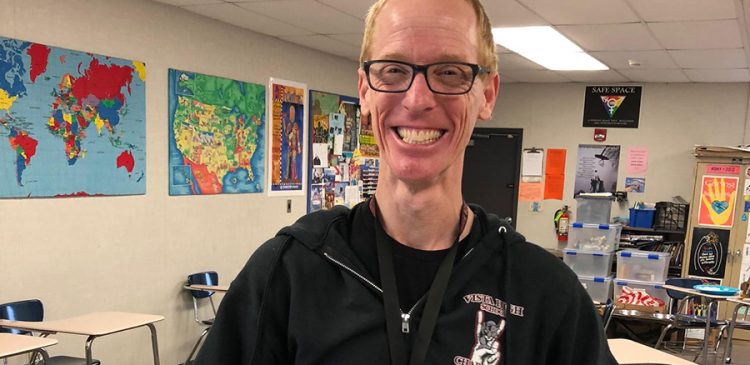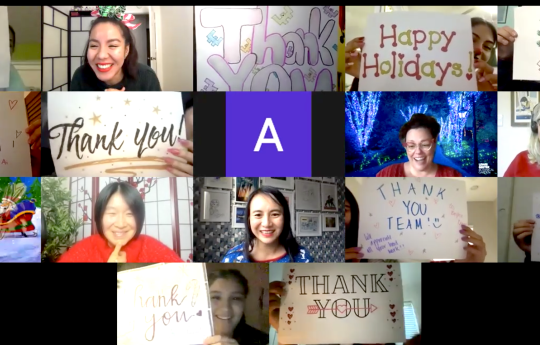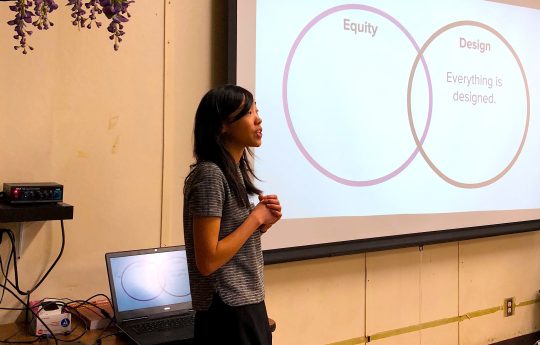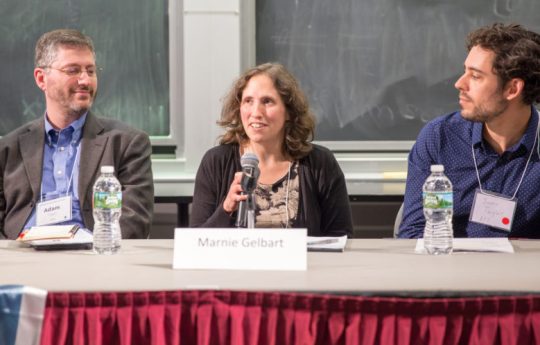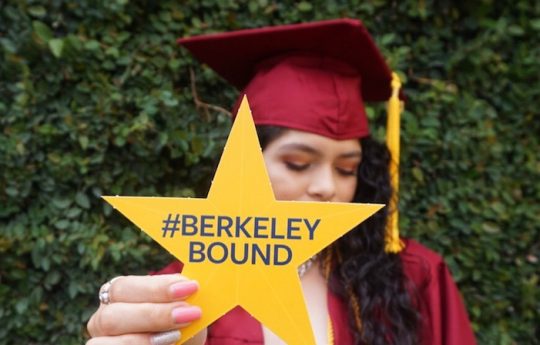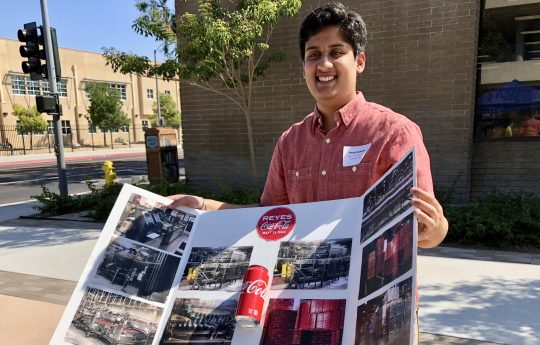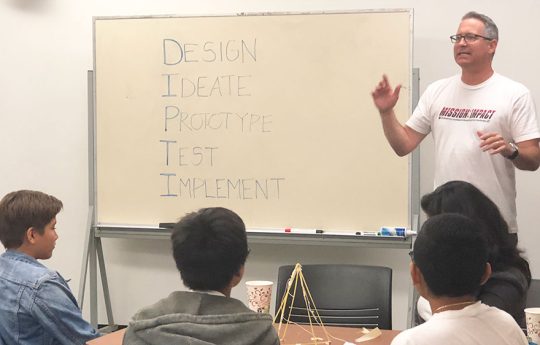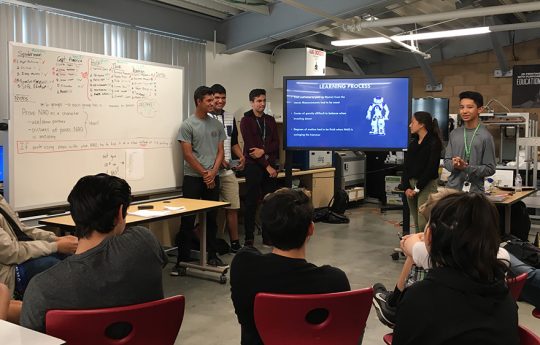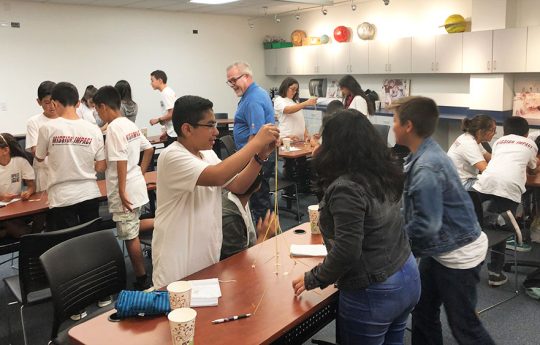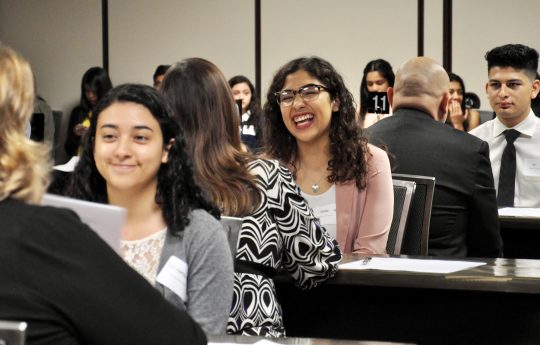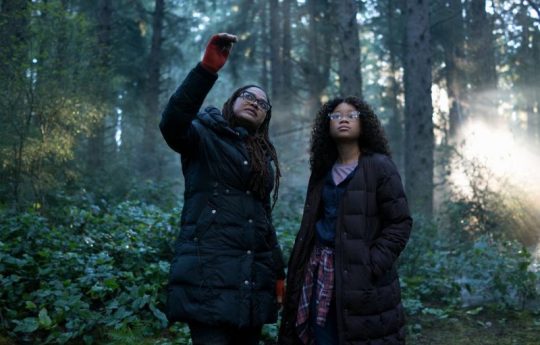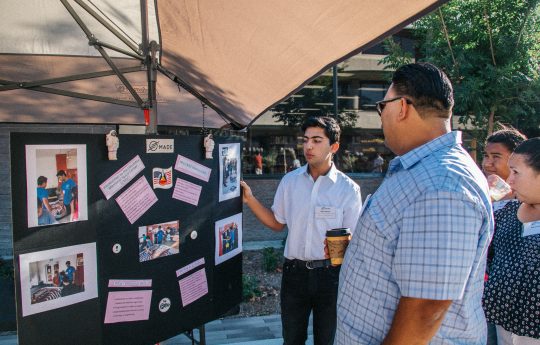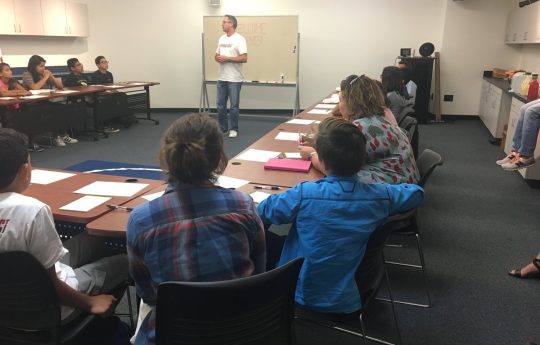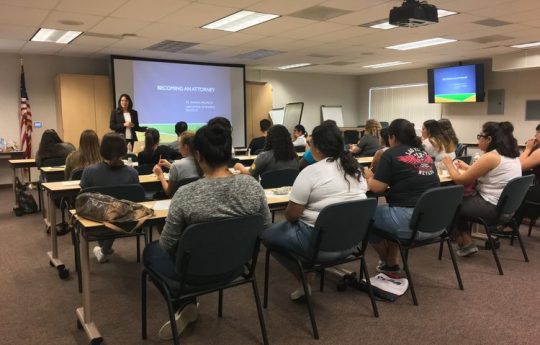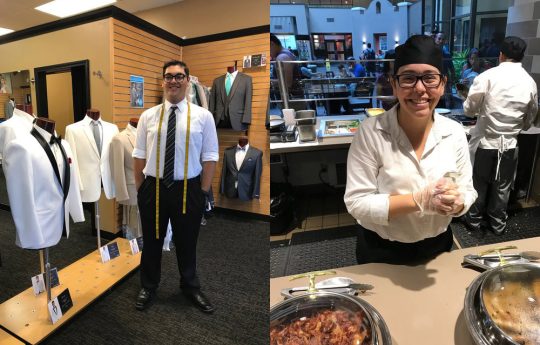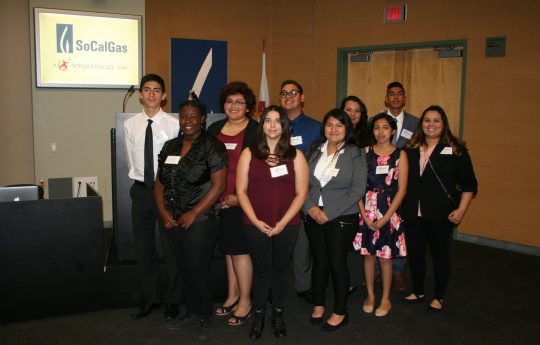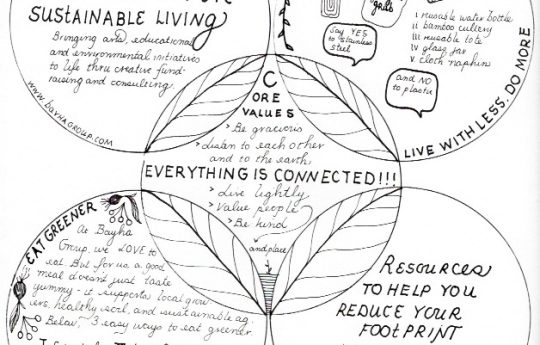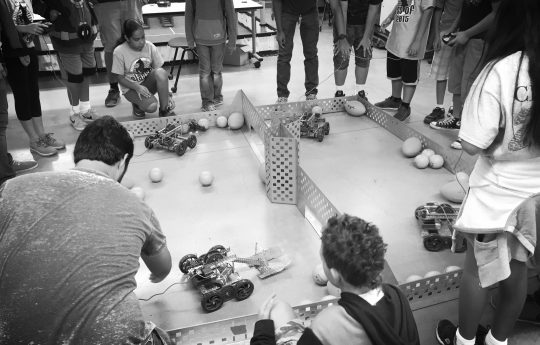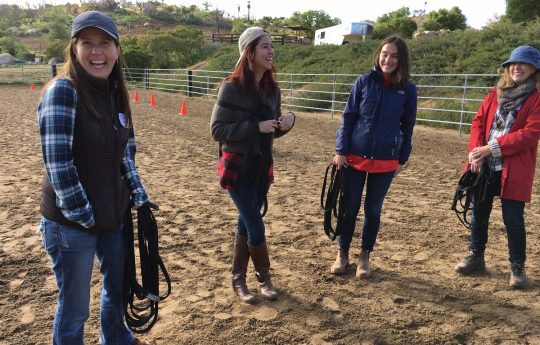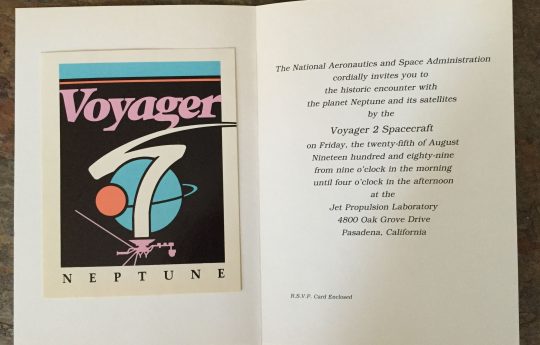Photo: David Hanlon of Vista High School in Vista, California.
By June Bayha
More than 10 years ago, I had the pleasure of helping Vista Unified School District (VUSD), including teacher David Hanlon of Vista High School (VHS), acquire $2 million in federal grant funding for the Partnerships in Character Education program from 2006 to 2010. The goals and objectives of this grant program was to promote schools as caring communities, instill leadership skills and develop positive character in students, and improve academic performance. Character education is a learning process that enables people to understand, care about, and act on core ethical values such as respect, justice, civic virtue and citizenship, and responsibility for self and others. Historically, this grant program had mostly funded middle and elementary schools.
Though our grant application was not initially funded, by a stroke of luck, a district selected for funded declined the grant award and we were the next in line for the funding. We were surprised and delighted the Character Leaders Program (which was the name of VUSDs grant program) received funding to be implemented at both high schools in the district. David’s program at Vista High continues to flourish, while the other school’s program has since come and gone. I sat down with him to talk about those early days, what he’s done in his program since its grant funding ended in 2010, and how he’s sustained it all these years later.
It was great to learn more about the program and how the grant was able to bring the dream of character education at VHS to life.
JUNE: I can’t believe that you guys are still doing the program. Has it grown over the years?
DAVID: You know, it’s interesting. It just grew each year and it was truly just phenomenal. We had a really large group of kids then, and we still have about 120 kids in the program every year.
JUNE: How do you run the program? Have you come across any challenges since your inception?
DAVID: It’s a class – an elective. This challenge has been that we used to have it one class during the day. For the fourth year now, we’ve only been able to offer it two periods after school as independent study, because not enough kids can fit it in their schedule during the day. Now it’s an independent study version. I meet with the kids who can stay that day, so it’s different every day. Sometimes I have a lot; sometimes I have a small number. It depends on the time of year.
JUNE: Does that make it hard to achieve your goals that way?
DAVID: Thankfully, we have a great group. We just kind of manage projects, and they come when they can. We have small groups on certain days. They come check in and work during lunch or when they can. It takes a lot of flexibility and dedication.
JUNE: What do you do with the students?
DAVID: There are four levels, so a kid can take it for four years, which is really cool. It’s neat to get to work with them that many years, just to see them develop and grow as people and as leaders and such, so that part’s really cool. There’s no textbook of course, because we’re the only high school that has the program. So, we read inspirational books.
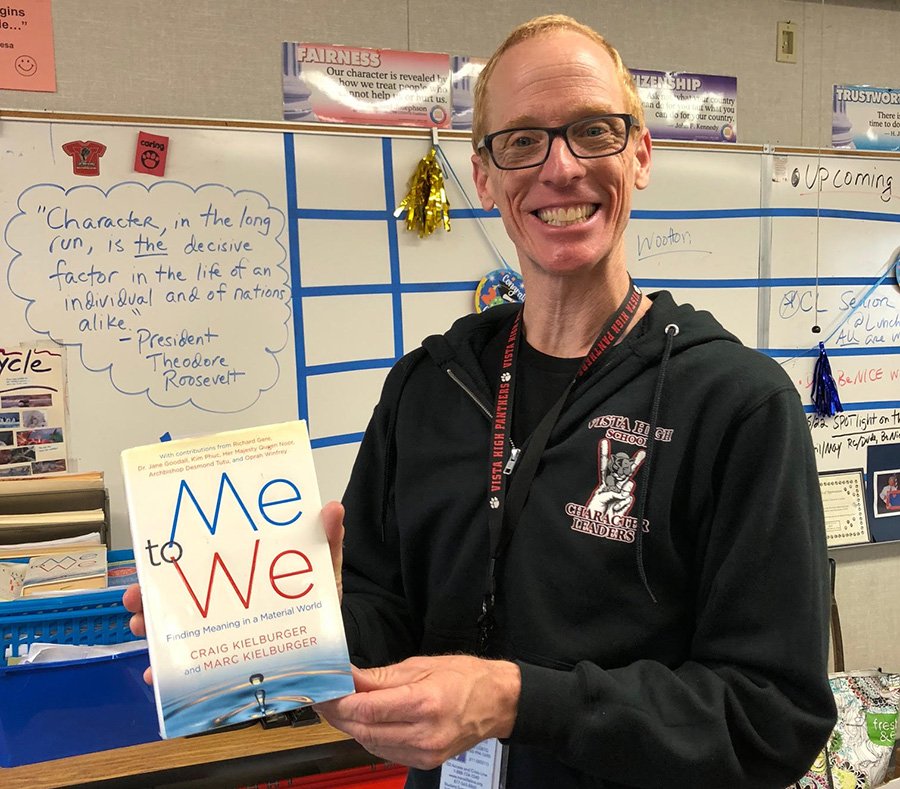
Most of it’s just a lot of self-reflective work, personally, and then a lot of hands-on work. They do service learning projects. Service learning is a big part of it. They do a big project each semester. Each student has to do an individual project, and then we do a lot of large group projects. It’s like an umbrella for anything positive on campus.
JUNE: What kinds of projects do you do?
DAVID. We still do ‘Breaking Down the Walls,’ which you started. Never missed a year. We also do the Safe School Ambassadors Anti-Bullying Program and the Museum of Tolerance. We still have not missed that either.
Last week we did a performing arts fundraiser that was an all-group program. We worked with different performing arts groups on campus and put on an event called ‘Spotlight on the Arts.’ It was a performing arts benefit concert for Spot Animal Rescue. We raised almost $1300 just from the one concert.
We’re doing Dude, Be Nice Week this week. It’s a national movement but we kind of changed it to meet our needs. The idea behind it is that students choose somebody they want to celebrate and someone to express gratitude towards. Then they bake cookies, make cupcakes, make painted rocks that say ‘You Rock,’ and make crowns, and they go to the teacher or student and honor and celebrate them. They tell them why they’re grateful for them and what they appreciate about them. They also do gratitude and kindness journals. They have to practice saying an attitude of gratitude and kindness and keep those all year long. We do a lot of self-reflective work and group projects – projects that are designed to improve the campus or in the community.
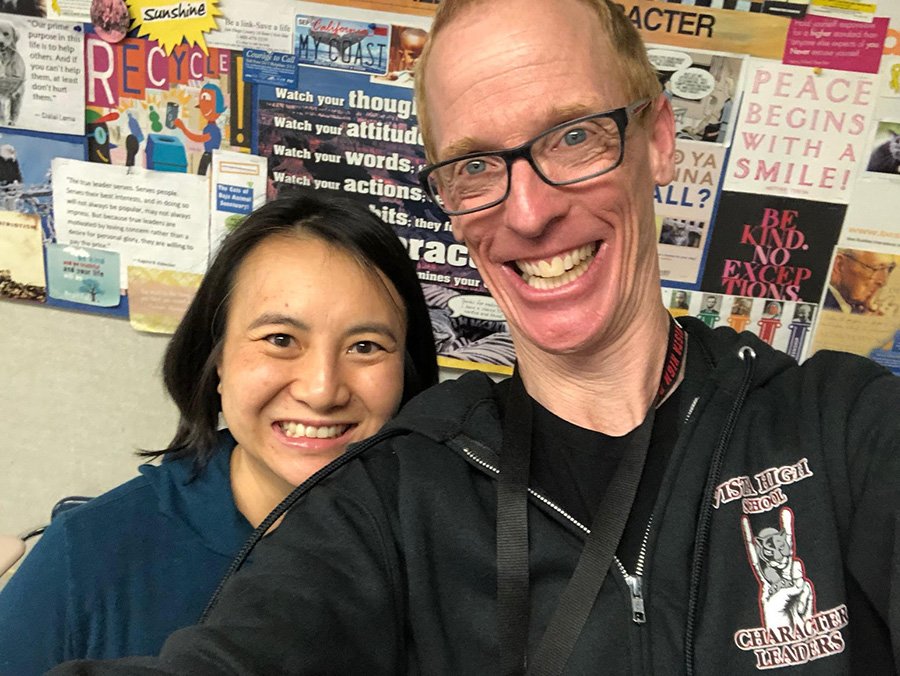
JUNE: Do you have any good stories from past students?
DAVID: Yesterday I had two kids visit who are just going to be juniors in college. One of the guys is a Resident Assistant at his school, and he goes, “Oh, I can’t tell you how often I use my leadership skills working with some of the kids.” His school kind of has a reputation as a party school, and he wants to be supportive and be there for the kids but also do what needs to be done in keeping them safe. He just mentioned yesterday that it was really beneficial, the leadership piece of our work together – how he learned to do the right thing but also be compassionate and be person-centered.
We also had one student, she was in our first year of the program. In her junior year, she went to Cambodia for a month with a program through her church. She volunteered at an orphanage for a month, and then it completely changed the trajectory of her life. She was going to be a business major before, and she came back and she majored in social work. Now, fast forward, she graduated from Oregon State and she now works at a Catholic NGO called Cabrini House in Swaziland, working with AIDs orphans and victims of violence. She’s been working there ever since. Her focus changed because of her service.
Many of our students who did their projects with kids of special needs are special ed teachers. I’ve got a number of those. It’s just neat to see how it can change their focus and career pathways.
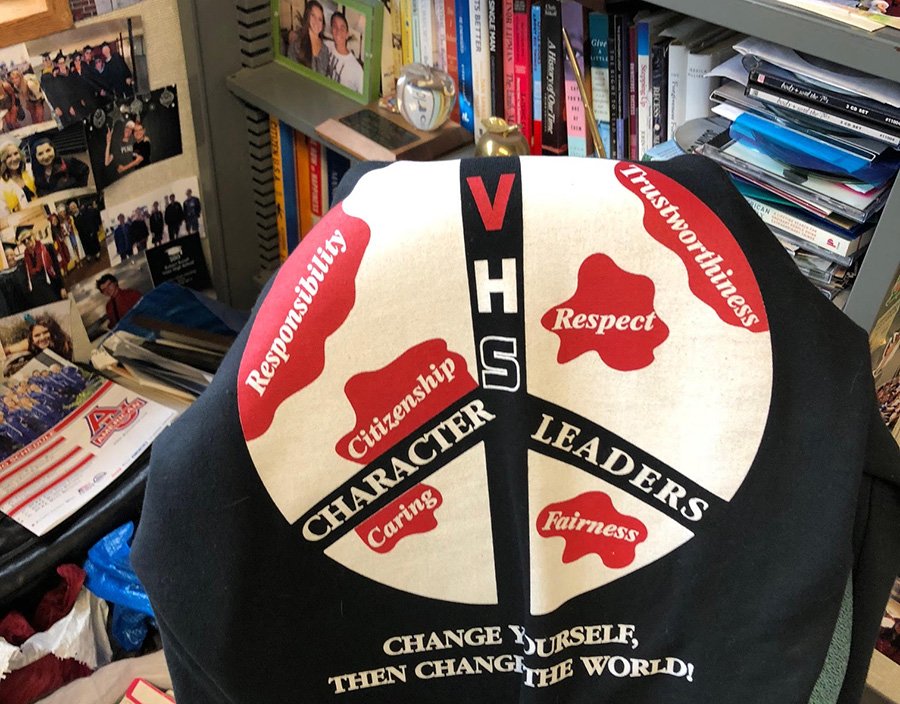
JUNE: Your program lasted long after your grant funding dried up. What’s the key to sustaining a program like this?
DAVID: I think you have to love it. I think you have to really believe in it, and honestly, when you work to build something, and then it’s like, “Oh, sorry, it’s going away because of the money,” to me that’s just unethical. When you’ve built something that you know works for kids, you keep it.
It’s also important to have great people on board. We had a great group. We had a great team support and support from the school. It wouldn’t happen without an admin team supporting it. If I had not received support, if the district hadn’t picked it up when the grant was over, it would have gone away.
JUNE: What do you think garnered that support? Why did the district decide to pick it up once funding was over?
DAVID: I think they have to see that it works. I think that’s the big thing. They need to see that it works, that it benefits. And we were able to show that. I think even anecdotal stories were really powerful to see kids that were more engaged. It was never going to change everything completely, but it had a noticeable impact on the school, and the staff would say that as well. We had very strong staff support. The administration too. We had no naysayers, none, and I think you need to have buy-in from all the participants.
JUNE: What advice would you give to others looking to sustain their grant-funded programs?
DAVID: I would say that you can’t isolate. You have to been engaged in all areas of the school, and so that includes administration and staff, but also connect with the district admin. Invite them to programs you’re doing so they can see its impact in action. We have a new superintendent. She’s wonderful. She just was hired in January, and she came to Breaking Down the Walls. She saw it and she said, “Oh, yeah, this is a valuable piece.” Literally, she came like three weeks after she was hired. She wasn’t from here. She didn’t know, and she’s great. When you have the top leader saying “I support this” and doing so very visibly, I think that’s key.
Lessons Learned
There are some great lessons to be learned in how David, his students and his district have supported the program through the years. I’m proud to have had a role in getting this educational effort off the ground and can’t wait to see it grow and develop as the years go on.
Do you have an educational program that you’re looking to accelerate? Contact us to learn about the grant funding process and what opportunities may be out there for your efforts.
Listen to the Full Interview on our Podcast


